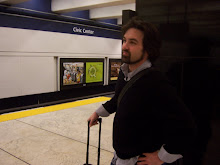 So begins the novel regarded as “a central statement of evolutionary awareness in late nineteenth century America”, and which just so happens to be set precisely on my block. The film adaptation, shot on location nearby, is considered one of the best films ever made. But I probably wouldn’t have had the slightest clue I was living in a tableau of such cultural significance if it wasn’t casually remarked upon by a young lady of my acquaintance who happens to be a dramaturgy intern at the American Conservatory Theater and, as such, is aware of literature in a way that I, even as an English major, have never been.
So begins the novel regarded as “a central statement of evolutionary awareness in late nineteenth century America”, and which just so happens to be set precisely on my block. The film adaptation, shot on location nearby, is considered one of the best films ever made. But I probably wouldn’t have had the slightest clue I was living in a tableau of such cultural significance if it wasn’t casually remarked upon by a young lady of my acquaintance who happens to be a dramaturgy intern at the American Conservatory Theater and, as such, is aware of literature in a way that I, even as an English major, have never been.
In McTeague: A Story of San Francisco, the narrator mentions the sound of the cable cars on Polk Street, which makes it clear McTeague’s “Dental Parlors” were not located down by City Hall or near Ghiradelli Square at the wharf, but literally within a block or two of where I currently reside. Which is, I suppose, why the bar right down the street from me is named "McTeague’s Saloon" (4 stars of 5 on yelp). Though the story is over 100 years old now, its descriptions of life on the street really aren't that far off. The description of the stillness when the cable stops at 1 AM... well, as if waking up to the sound of the cable car every morning wasn’t already like living in a dream, this city never ceases to amaze.

Norris’ description of Polk as an “accommodation street” is not precisely understood today, but the street certainly remains dominated by small shops as he describes. At least one analyst reckons the expression refers not just to Polk as a place where food and lodgings are offered, but also as a part of the infrastructure designed to afford access to someplace else. In other words, if that’s correct, Polk Street was never itself intended as a destination, only a means to somewhere people would actually want to go. But that, of course, is what makes it so appealing to all sorts of marginal characters, and an ideal setting for a gritty novel. And it fits exactly the role Polk Street has played in my life. I have to admit, when I was a just-slightly-better-than-homeless freelance writer, the crudity of Polk in the Tendernob region seemed appropriate.

Now that I’m a just-slightly-better-than-homeless freelance writer who’s been accepted to law school, I’m a little less comfortable with these surroundings. Still, the irony of having this street as a central figure in this blog doesn't escape me. A future post will have to discuss more about the troubled history of this area right up to today, but it's comforting to know the link to City Lights on the other side of the hill: the same 1988 proposal that renamed streets in North Beach for Beat writers, creating Jack Kerouac St., also made an alley off Polk into Frank Norris St. And I'd always assumed, as I walked by, he was some old senator or something.

Anyway, I plan to make a serious effort to read McTeague, and from what I’ve already seen, the writing is quite good. In a way it feels strangely like deja vu, like reading a story I already know, as if this classic had seeped so deeply into our culture that it's enfused our awareness without ever being read directly by any of us. It certainly doesn't read like a "classic." Between coming up with enough articles each week to survive, and working my way through a 700-page history of American law, as well as several other nonfiction books, my plate is a bit full. Still, on a Sunday afternoon, I reckon I can make it my custom, while I still live here, to take in some Frank Norris at one of the coffee joints on Polk Street.



1 comment:
You seem to have days longer than 24 hours! Lucky you ;)
Good luck on all that reading. When do you officially start school?
Post a Comment